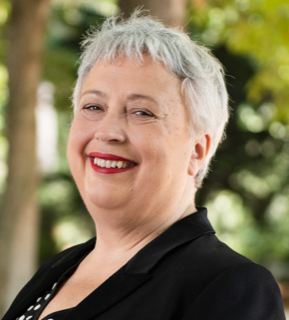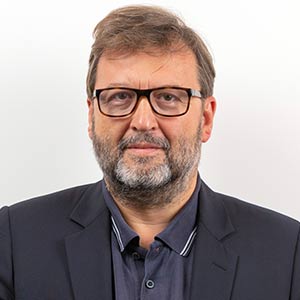Special report : Sustainability, the new normal?- Sylvie Bénard The

Sylvie Bénard “These transformations are a way to save money!”
Former director of environment of the LVMH Group and President of Paris Good Fashion, Sylvie Bénard recently founded La Dame à la Licorne, a consulting firm to assist companies making a virtuous transformation. Here, she gives us her specialized insight into how the industry is changing, and best practices to put in place.
How, in your opinion, has the fashion industry evolved in terms of CSR?
We’ve felt the topic simmering for the last ten years or so, and now it’s everywhere. Brands, managers, buyers, consumers; everyone is aware that change is underway. All that remains is making the right decisions – and everyone has a role to play, because the issues extend far beyond fashion and challenge our way of life. My mother had a wardrobe that fit in a closet no more than 2 meters wide. She had a seamstress, and I saw some of her garments last her entire lifetime. The long dress became short; the following year, the collar was beaded. We gave the clothes away, we never threw them away. We are returning to this kind of behavior, or rather, we are reinventing it by imagining, for example, recycling that can give a new life to things.
Almost every fashion house now proclaims a commitment to eco-friendliness. Which ones seem most authentic to you?
All brands know there’s no turning back – and they’ll be heavily penalized if they refuse to get on board, or lack transparency. Authenticity, values, the quality of information about the products have all become critical criteria in the purchasing act, as recent public referendums have confirmed.
You help companies through this change process. How do you help them proceed?
I start by suggesting that companies compare their own activities with the 17 sustainable development objectives set forth by the United Nations. This helps them ask themselves the right questions and review all their processes – from finding a supplier to the end of a product’s life, from boutiques to shipping to distribution platforms. But that’s not all. These findings need to be accompanied by an understanding of the societal, social and environmental issues underlying the process, as well as a genuine commitment to it. Thanks to this fresh perspective, the brand will be able to conduct the correct audit of a supplier and find the right message to convince its customers of the sincerity of its of its values.
Must they inevitably change everything?
That would be impossible! And it’s easy to make many small changes. Let’s take packaging as an example. Say you want to order red and blue 10×10 boxes from your supplier. But you could also formulate your request in a different way, asking, for example, for a two-toned square box with a reduced environmental impact. The supplier then has the flexibility to offer a 9×9 box, which allows him to cut six boxes instead of four from a single sheet of cardboard. He might also suggest choosing a less expensive blue-and-white combination. You have to get everyone around the table to work together on the eco-design of products.
This also challenges the idea that changes are necessarily very costly…
To the contrary, in many cases they provide an opportunity to save money. Fewer raw materials, less transport… Being virtuous is not necessarily a luxury! Of course, some changes require investment. Research and innovation inevitably have a cost. Reducing the energy consumption of stores is also costly, but you have to think in terms of the big picture. The purchase of LEDs is rapidly offset by a reduction in consumption. A polluting cleaning product may be cheaper to buy, but sooner or later it will have to be eliminated through a process that is very expensive. It is essential to think long term by establishing a strategy, and a realistic pace to proceed from one step to the next.
All of this requires the support of a company’s employees. Do you also work on raising this necessary awareness?
It is indispensable, but companies today don’t need to talk the right talk anymore. Employees themselves are asking for change. For the new generation, this commitment is one of the main criteria for choosing an employer, but the demand concerns all ages and all statuses. Sometimes, employees don’t voice it, but all you have to do is organize a meeting on the subject, and you’ll discover that many feel involved and that some are already getting involved in their personal lives. Today, the main obstacle is concern about the scope of the work to be done. We need to reassure, share best practices and accept the time involved. My experience has also shown that change is more effective and better experienced when it starts from the strong conviction of a president who carries the company’s message and determines the way forward.
How is the Covid pandemic influencing this fundamental shift today? Is it a catalyst?
Crises are always a catalyst – for awareness, change, and business! The pandemic is no exception, and it has already transformed how we work. Companies managed to put their teams to work from home in a mere three months, whereas normally that would have taken three years! I think ecological changes will move just as fast. Today, the facts have been established, and the goals too, with the United Nations objectives having been made part of the agenda of 150 countries that want to move, together, towards a more virtuous world by 2030.
Continue reading our Sustainability special report:

Along with our interview with Thomas Bucaille, Director HR & CSR at Petit Bateau
